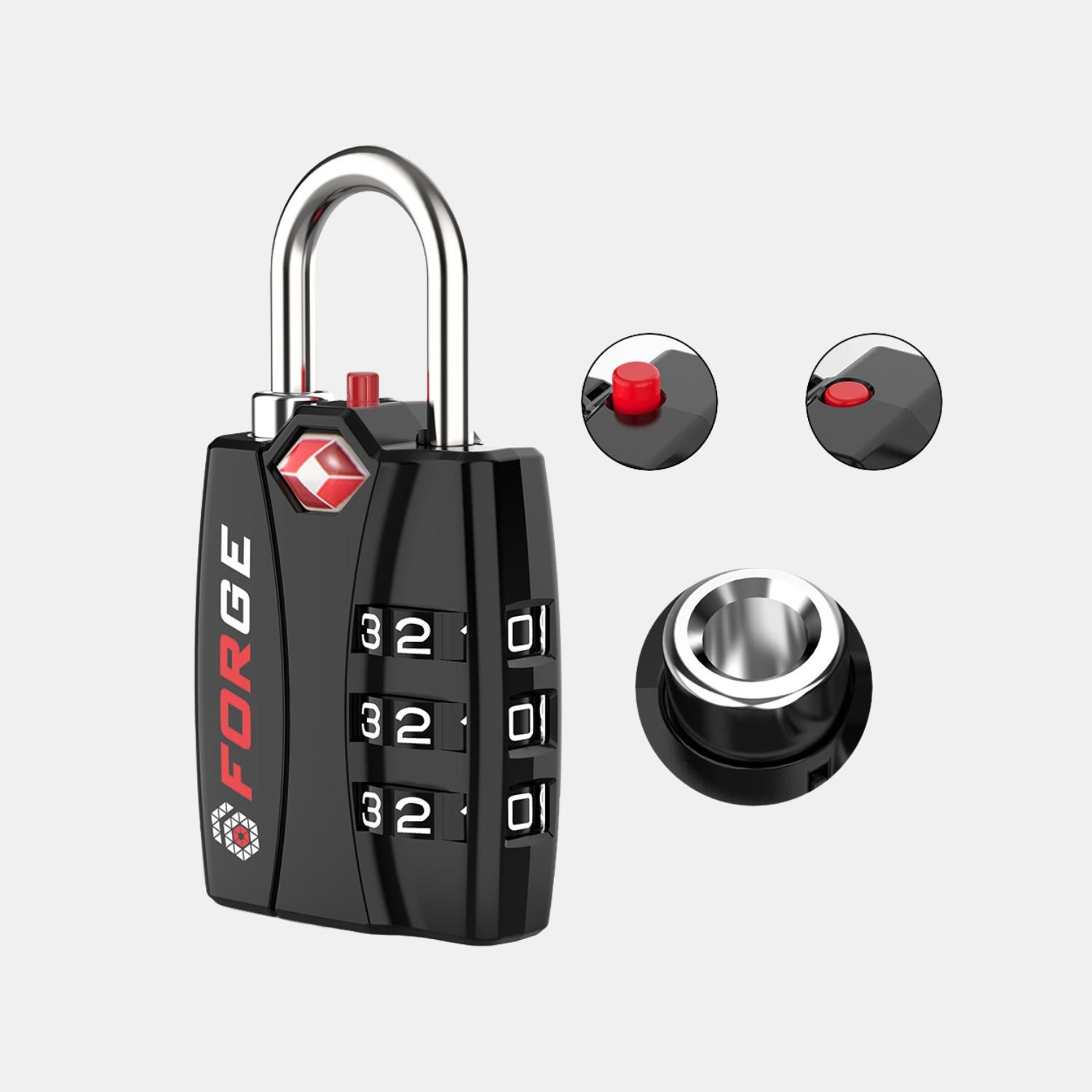Unlocking Your Journey: Discover the Best Travel Locks for Ultimate Peace of Mind!
Traveling can be an exhilarating experience, filled with adventures and new discoveries. However, one crucial aspect that often gets overlooked is securing your luggage. With the rising incidents of lost or tampered bags, the importance of using travel locks for suitcases cannot be overstated. These locks not only provide a sense of security but also deter unauthorized access. In this article, we will explore the various types of travel locks available on the market, their features, and how to choose the right one for your travel needs. By the end, you'll understand why investing in a good travel lock is essential for a worry-free journey.

Types of Travel Locks
When it comes to travel locks, you have several options to consider. The most common types include key locks, combination locks, and smart locks. Each type has its own unique features and functionality. Key locks are the traditional choice, offering straightforward security but requiring you to keep track of a physical key. Combination locks eliminate the hassle of keys by using a numerical code, while smart locks take it a step further by integrating technology for enhanced convenience and security. Understanding how each type works can help you make an informed decision about which lock best suits your travel style.
Key Locks
Key locks are the classic choice for securing your suitcase. They consist of a simple locking mechanism that uses a physical key to open. One of the main advantages of key locks is their ease of use; just insert the key and turn. However, a significant drawback is the potential risk of losing the key, which can leave you locked out of your luggage. I remember a friend who lost her key while traveling through Europe, and it turned into a stressful situation as she had to find a way to get her luggage open. While reliable, key locks require a bit more attention to ensure you don’t misplace the key.
Combination Locks
Combination locks are a popular alternative to key locks, as they operate using a numerical code that you set yourself. This means you don’t have to worry about carrying a key around, which can easily get lost or stolen. Setting a combination is usually straightforward, and many models allow you to change the combination for added security. A friend of mine swears by her combination lock; she loves that she can simply remember her code, making it both convenient and secure. However, remember to choose a combination that’s easy for you to recall but hard for others to guess!
Smart Locks
Smart locks represent the latest advancement in luggage security. These locks often feature Bluetooth connectivity, allowing you to lock and unlock your suitcase using a smartphone app. Some smart locks even come with additional features like tamper alerts and GPS tracking, which can provide peace of mind while traveling. They appeal to tech-savvy travelers who appreciate the convenience of controlling their luggage with their devices. However, it's essential to ensure your smartphone is charged and that you're comfortable using the technology. My tech-savvy cousin never travels without his smart lock; he loves being able to track his luggage's location through his phone.
Features to Consider When Choosing a Travel Lock
When selecting a travel lock for your suitcase, it’s crucial to consider several essential features. Durability is paramount; you want a lock that can withstand the rigors of travel. Look for materials that are resistant to wear and tear, such as hardened steel or high-quality plastic. TSA approval is another important factor, especially for those traveling to or within the United States, as it allows airport security to open your luggage without damaging the lock. Additionally, ease of use and compatibility with your suitcase size can significantly affect your travel experience. A lock that's cumbersome to use or doesn’t fit your suitcase properly can lead to frustration.
Durability and Materials
The materials used in travel locks play a critical role in their security and longevity. Locks made from high-strength materials, such as stainless steel or reinforced plastic, are more resistant to cutting and tampering. A friend of mine once had a flimsy lock that was easily broken into, resulting in a lost bag. Investing in a durable lock ensures that your luggage remains secure throughout your travels.
TSA Approval
TSA-approved locks are designed to be opened by security personnel using a master key, preventing them from cutting the lock if they need to inspect your luggage. This feature is particularly beneficial for travelers heading to the U.S., where TSA regulations require the ability to inspect luggage without damaging it. Using a TSA-approved lock can save you from the hassle of dealing with a broken lock and a potentially compromised suitcase.
Tips for Using Travel Locks Effectively
To maximize the security of your luggage, there are several best practices to follow when using travel locks. First, always lock your suitcase, even if you’re just stepping away for a moment. It only takes a few seconds for someone to reach into an unlocked bag. Second, choose a lock that fits securely and is compatible with your suitcase; a poorly fitting lock may not provide adequate security. Additionally, when using combination locks, make sure to choose a combination that is memorable but not obvious, avoiding common patterns like "1234" or "0000." Lastly, periodically check your lock throughout your travels to ensure it remains secure and functional. My friend learned this the hard way; she discovered her lock had been tampered with only after arriving at her destination!
Final Thoughts on Securing Your Luggage
In conclusion, the importance of travel locks for suitcase security cannot be overstated. They provide peace of mind and protect your belongings from theft or loss. By understanding the different types of travel locks and their features, you can make an informed decision that best suits your travel needs. Whether you prefer the traditional key lock, the convenience of a combination lock, or the tech-savvy approach of a smart lock, the right choice will enhance your travel experience. Remember to consider durability, TSA approval, and ease of use when selecting your travel lock, and you’ll be well on your way to a worry-free journey!








